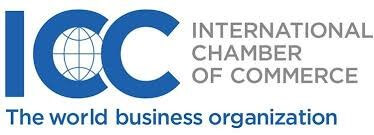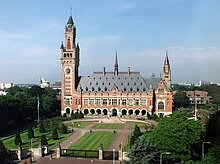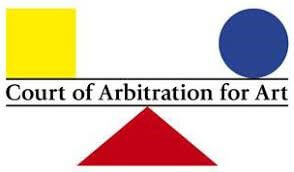There are many Courts of Arbitration, but technically only one International Court of Arbitration, which refers to the ICC’s International Court of Arbitration. Somewhat confusingly for those unfamiliar with arbitration, Courts of Arbitration do not decide on the substance of disputes themselves, as this role is left to private arbitrators. We will briefly examine the role of the ICC’s International Court of Arbitration, prior to examining other Courts of Arbitration.
The ICC’s International Court of Arbitration

The International Court of Arbitration (often called the “ICC Court”) has provided services for more than 23,000 arbitration cases since its establishment in 1923. The International Court of Arbitration is an independent and autonomous body, forming part of the International Chamber of Commerce (the “ICC”), the world’s largest business organization, with its headquarters in Paris, France. The International Court of Arbitration, despite being called “the Court”, is not a judicial body and does not itself make judgments on the substantive aspects of disputed matters.[1] According to its Statute, published as Appendix I to the ICC Arbitration Rules, the main role of the International Court of Arbitration is to provide supervision of arbitration proceedings in accordance with the ICC Arbitration Rules, with its role including the scrutiny and approval of arbitral awards. The International Court of Arbitration follows its own Internal Rules, which are attached as Appendix II to ICC Arbitration Rules.
The International Court of Arbitration consists of a President, Vice-Presidents and its Members.[2] Members are appointed for three-year terms by the ICC World Council upon proposals of National Committees and Groups.[3] For its current term (2018-2021), the International Court of Arbitration has 176 Members from 104 countries and territories, with precise gender parity of 88 women and 88 men.[4] The current President of the International Court of Arbitration is Mr. Alexis Mourre of France, who was appointed for a second, three-year term which commenced on 1 July 2018.
In its work, the International Court of Arbitration is assisted by the ICC’s Secretariat. The General Secretariat has a Secretary General, in charge of the day-to-day running of the Secretariat of the Court. The Secretary General is assisted by a Deputy Secretary General, together with a team of other staff and specialists planning and overseeing daily operations. Managing Counsel and the Secretary General and the Deputy Secretary General all assist in managing the caseload. Managing Counsel are assisted by a team composed of two or more Deputy Counsel and two or more Secretaries.
When parties agree upon an arbitration clause referring to the ICC Rules of Arbitration, they also assign certain decision-making powers to the International Court of Arbitration. These powers include, for example: the power of the International Court of Arbitration to make decisions regarding arbitrators (appointing and replacing arbitrators, deciding on challenges made against them); monitoring the arbitral process to make certain that it is performed properly and with the required speed and efficiency; scrutiny and approval of all arbitral awards, in order to ensure their quality and enforceability; setting, managing and, if necessary, adjusting the fees and advance on costs; and overseeing emergency proceedings before commencement of the arbitration.[5] The official and working languages of the International Court of Arbitration are English and French.
The London Court of International Arbitration (the LCIA)

The ICC’s International Court of Arbitration should be distinguished from arbitral institutions which have the wording “Court of Arbitration” in their title.
Another famous Court of Arbitration is the London Court of International Arbitration (the “LCIA”), a leading arbitral institution based in London, United Kingdom. Originally known as the “City of London Chamber of Arbitration” and then known as the “London Court of Arbitration”, due to an increasing number of international cases its name was changed in 1986 to the “London Court of International Arbitration”, or the “LCIA”, as it is commonly known. The LCIA is, however, not a court, but an independent company limited by guarantee incorporated in England. Today, the LCIA is entirely independent from it two founding bodies – the City of London and the London Chamber of Commerce.
The LCIA is governed by a Director General and a Board of Directors, comprised of prominent London-based practitioners, who are responsible for the development of the LCIA. The Director General and the Board of Directors, however, do not have a significant impact nor direct involvement in the administration of arbitral proceedings. This is for the LCIA Secretariat and the LCIA Arbitration Court. The Secretariat has a Registrar, Deputy Registrar and several legal counsel whose role is the day-to-day administration of cases.
The LCIA Arbitration Court, in turn, is a non-permanent organ of the LCIA whose principal role is the appointment of arbitral tribunals, decisions on the challenges of arbitrators and control of costs, much like the ICC’s International Court of Arbitration.[6] The LCIA Court has a President and several Vice-Presidents, and its members are prominent arbitration practitioners, arbitrators and academics. The current President of the LCIA Court is Judith Gill QC (UK).[7]
The Permanent Court of International Arbitration

In addition to the ICC’s International Court of Arbitration and the London Court of International Arbitration, another well-known “Court of Arbitration” is the Permanent Court of Arbitration (the “PCA”), based in The Hague, Netherlands. The PCA was established in 1899 to facilitate arbitration and other forms of dispute resolution between States. The PCA is not an international court itself, but rather an intergovernmental organization with the purpose of assisting parties with the conduct of arbitrations. Today, the PCA has 121 Contracting Parties who have acceded to one of the PCA’s founding conventions.[8] The PCA provides administrative support in international arbitrations involving various combinations of States, State entities, international organizations and private parties. The PCA also frequently provides case administration in support of arbitrations under the UNCITRAL Rules. The Secretary General of the PCA also performs certain special functions regarding the appointing authority under the UNCITRAL Rules. The PCA also has its own arbitration rules, the PCA Arbitration Rules, whose most recent version was published in 2012.
Court of Arbitration for Sports
Another prominent “Court of Arbitration” is the Court of Arbitration for Sports (“CAS”). The CAS is based in Lausanne, Switzerland and is today a primary body for the resolution of sport-related disputes. The CAS is also not a Court, but rather an arbitration body helping with the administration of arbitration proceedings in sports-related matters. Since its establishment in 1984, as part of the International Olympic Committee, the CAS has significantly helped to develop sports arbitration as a reliable and fast method for the resolution of sport disputes.
Court of Arbitration for Art

Some Courts of Arbitration are more recent. A recently-established arbitral institution, for instance, is the Court of Arbitration for Art. The Court of Arbitration for Art was established in The Hague in June 2018 jointly by the Netherlands Arbitration Institute and the Authentication in Art Foundation to oversee arbitration and mediation services, as a response to the difficulties in administrating judicial art-related cases. How this arbitral institution will perform its intended role in practice remains to be seen.
In conclusion, the “International Court of Arbitration”, “Permanent Court of Arbitration” and other courts of arbitration are not courts in the sense of entities that resolve substantive disputes between parties themselves. Rather, they are arbitration institutions, or organs of arbitration institutions, whose primary role is to help administer, supervise and control arbitration and mediation proceedings under different arbitration rules.
[1] See https://iccwbo.org/dispute-resolution-services/icc-international-court-arbitration/
[2] ICC Arbitration Rules, Article 2, Appendix I, Statute of International Court of Arbitration.
[3] ICC Arbitration Rules, Article 3, Appendix I Statute of International Court of Arbitration.
[4] See https://iccwbo.org/dispute-resolution-services/icc-international-court-arbitration/court-members/
[5] See https://iccwbo.org/dispute-resolution-services/icc-international-court-arbitration/
[6] See http://www.lcia.org/LCIA/constitution-of-the-lcia-court.aspx
[7] See http://www.lcia.org/LCIA/the-lcia-court.aspx
[8] See https://pca-cpa.org/en/about/introduction/contracting-parties/
